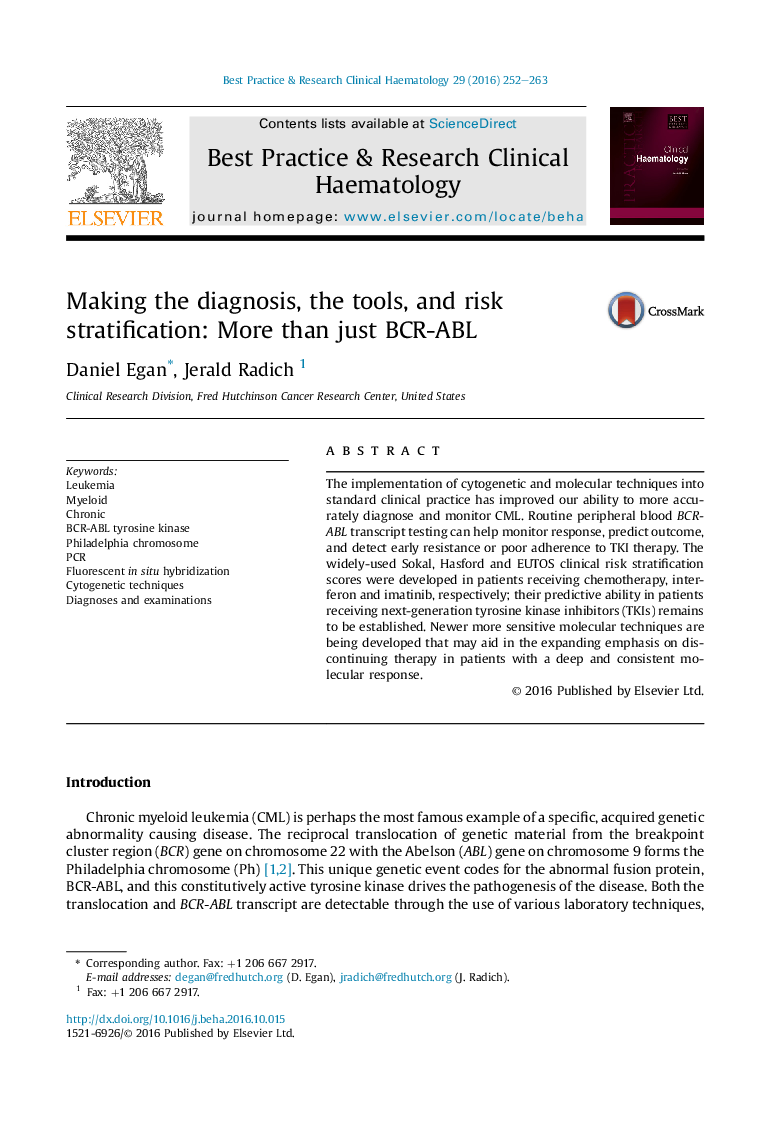| Article ID | Journal | Published Year | Pages | File Type |
|---|---|---|---|---|
| 5523878 | Best Practice & Research Clinical Haematology | 2016 | 12 Pages |
The implementation of cytogenetic and molecular techniques into standard clinical practice has improved our ability to more accurately diagnose and monitor CML. Routine peripheral blood BCR-ABL transcript testing can help monitor response, predict outcome, and detect early resistance or poor adherence to TKI therapy. The widely-used Sokal, Hasford and EUTOS clinical risk stratification scores were developed in patients receiving chemotherapy, interferon and imatinib, respectively; their predictive ability in patients receiving next-generation tyrosine kinase inhibitors (TKIs) remains to be established. Newer more sensitive molecular techniques are being developed that may aid in the expanding emphasis on discontinuing therapy in patients with a deep and consistent molecular response.
